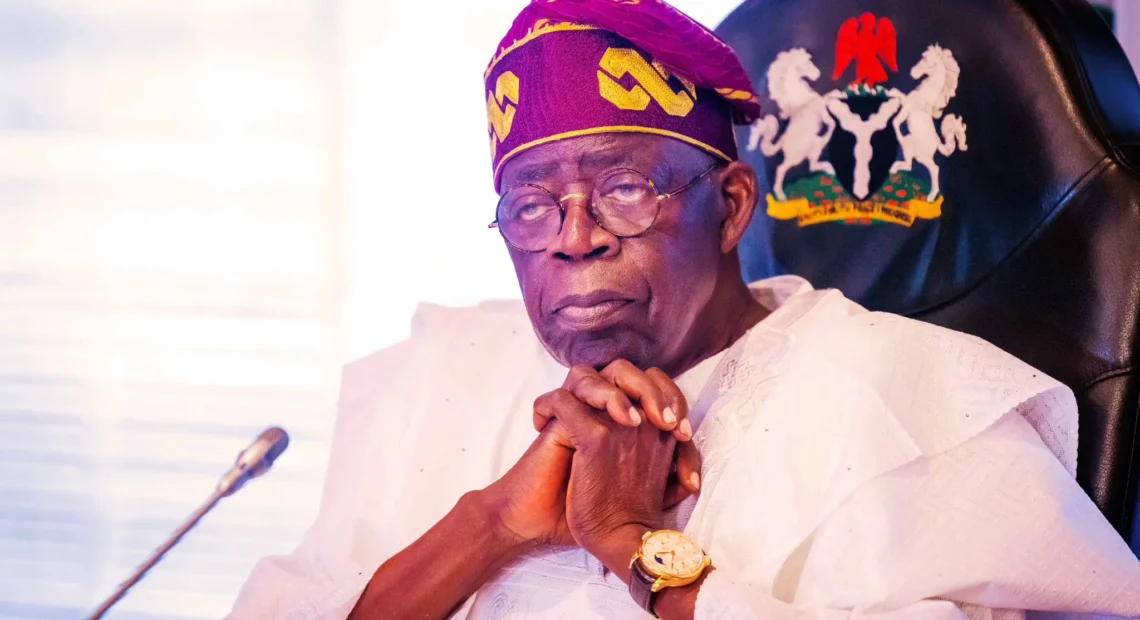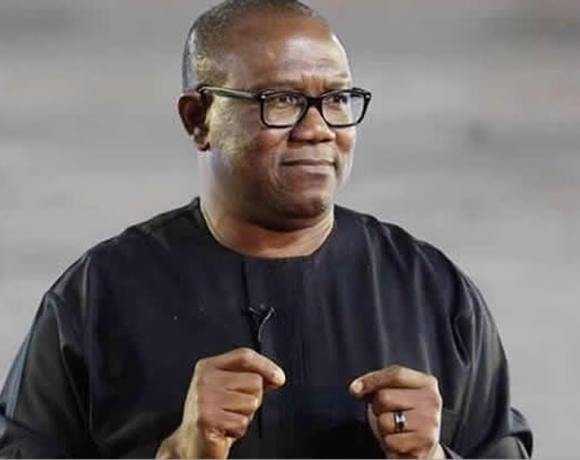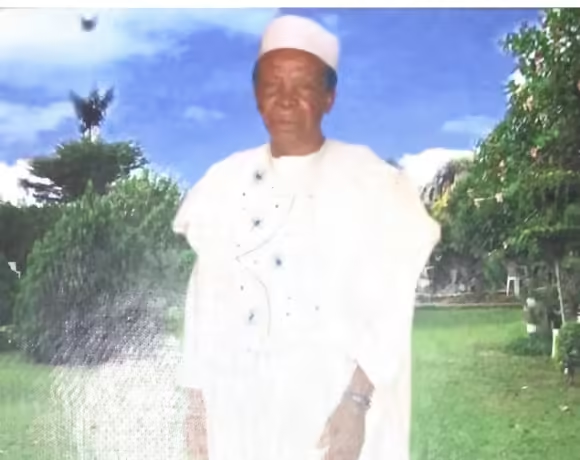To Save or Sink Nigeria? Tinubu’s Pardon Sparks Mixed Reactions

By Emmanuel Kwada
On Saturday, President Bola Ahmed Tinubu made a decision that sent ripples across Nigeria: 175 convicts and former inmates were granted pardons, clemency, or sentence reductions. It’s one of the largest acts of mercy in the nation’s democratic history, a move that feels like a warm embrace to some and a reckless gamble to others.
Guided by the Presidential Advisory Committee on the Prerogative of Mercy, chaired by Attorney-General Lateef Fagbemi (SAN), the pardons aim to heal old wounds and give second chances. But for many Nigerians already weary from rising insecurity, soaring fuel prices, and distrust in the system, this act raises a haunting question: Will mercy mend the nation or unravel it further?
The decision, approved by the National Council of State on October 9, covers 17 full releases (11 posthumous), 82 clemency grants, 65 sentence commutations, and seven death row reductions to life imprisonment.

Federal Executive Council (FEC) Credit: State House
The committee sifted through 294 applications, looking at remorse, good behavior in prison, enrollment in programs like the National Open University of Nigeria (NOUN), old age, health struggles, and family needs.
It’s a list that tells stories of regret, resilience, and redemption, but also of crimes that have scarred communities. From drug traffickers to murderers, corrupt politicians to activists wronged by history, the pardons touch every corner of Nigeria’s complex tapestry.
Drug Lords Walk Free: A Second Chance or a Dangerous Precedent?
Topping the list is the release of 51 drug convicts—29.2% of the total—whose crimes once fueled addiction and despair across Nigeria’s streets. These aren’t just small-time pushers; many were major players convicted under NDLEA laws, now freed after showing progress in prison, like learning trades or earning degrees.
Alongside them, 42 others (24%) convicted of illegal mining—often tied to funding banditry in gold and lithium regions, also walk free.
But what if they slips back?
Supporters say these pardons could turn ex-offenders into advocates, easing prison overcrowding (Nigeria’s jails hold 80,000 against a 50,000 capacity) and saving ₦50 billion yearly for schools or hospitals.
But what if they slips back? Critics fear releasing 51 drug convicts an unprecedented move globally—could flood streets with harder drugs, spiking addiction rates that already claim 70,000 lives annually.
Families who’ve lost loved ones to drugs are livid, asking why mercy seems to favor those who profited from pain. Will this embolden cartels, already thriving in a nation where NDLEA’s budget of ₦120 billion feels like a drop in the ocean?
Healing History’s Wounds: Honoring Icons of Struggle
Among the most poignant acts are posthumous pardons for legends whose convictions left deep scars. Ken Saro-Wiwa and eight other Ogoni activists, executed in 1995 under General Sani Abacha for alleged murders tied to oil protests, are finally exonerated, alongside four Ogoni victims of the violence.

Ken Saro Wiwa
Herbert Macaulay, a nationalist jailed in 1913 for sedition by colonial rulers, and Major General Mamman Vatsa, a poet-soldier hanged in 1986 for an alleged coup, also receive justice. President Tinubu calls these “corrections of historic wrongs” to unite a fractured nation.
For Grace, an Ogoni elder whose brother marched with Saro-Wiwa, this pardon feels like a long-overdue apology. It’s a chance to honor her heroes, whose fight against oil pollution still resonates in her polluted riverside village.
These acts could ease tensions in the Niger Delta, drawing investors to a region desperate for clean energy projects that might boost GDP by billions.
But Grace wonders if it’s enough. Without reforms to ensure fair trials, these pardons might feel like symbolic gestures, papering over systemic biases that still marginalize minorities. If ethnic grievances simmer, conflicts could flare again, undermining the unity Tinubu seeks.
Corruption’s Shadow: Redeeming the Elite?
High-profile corruption cases stir the pot, with former lawmaker Farouk Lawan—jailed for bribery in the 2012 fuel subsidy scam—among the 22 (12.3%) pardoned for fraud or graft.
Lawan, once a crusader against oil theft, showed “sufficient remorse,” as did others like Anastasia Daniel Nwaobia and Hussaini Umar, whose sentences were cut for good conduct.

Farouq Lawan
Picture a struggling taxi driver hit hard by fuel price hikes; must feels betrayed. Why forgive those who looted billions while he struggles to buy petrol?
Economists warn this could tarnish Nigeria’s image, scaring off 15% of foreign investment and widening inequality. The “big man” impunity narrative might grow, making ordinary Nigerians feel justice is only for the powerful.
Violence’s Lasting Echoes: Murderers and Kidnappers Freed
Homicide cases; 24 in total, or 13%—hit hardest, none more than Maryam Sanda, spared death row for stabbing her husband in 2018. Her pardon, partly for her children’s sake, has victims’ families reeling.
Notorious kidnapper Kelvin (Chukwudi Onuamadike), who abducted SAN Mike Ozekhome in 2011, gets a reduced sentence, as do seven death-row inmates like Moses Ayodele Olurunfemi (13 years) and Mohammed Umar (7 years). Kidnapping, a crisis plaguing thousands yearly, accounts for three cases.
For Maryam’s kids, this pardon means a mother’s return, a chance to rebuild a broken family. But for the victim’s family members, it’s a gut punch. This sends a message that murder has no consequences, especially when police, underfunded at ₦120 billion, struggle to keep order.

Maryam Sanda and her late Husband
Criminology models predict a 10-15% homicide spike over a decade, and with kidnapping syndicates thriving, freeing even three could inspire copycats, fraying Nigeria’s fragile safety net.
A Nation Holding Its Breath: Hope or Heartbreak?
Atiku Abubakar criticizes President Tinubu’s presidential pardon, arguing it undermines justice and emboldens criminality. The pardon, benefiting those convicted of serious crimes like drug trafficking and murder, sends a dangerous signal amid Nigeria’s insecurity and moral decay.
Atiku questions Tinubu’s moral authority, citing his own past drug-related issues, and calls for leadership that upholds justice without trivializing it.
Senator Dino Melaye slams Tinubu’s pardon of 70 drug lords as ‘unprecedented in history’, urges scrapping of NDLEA
Pardon granted 70 drug lords by Pres Tinubu is unprecedented in history. Checks have revealed that it has never happened in the history of the world. My advise to the President is to scrap the NDLEA. His action has made a beautiful nonsense of all the efforts of the agency…
— Senator Dino Melaye. (SDM) (@_dinomelaye) October 12, 2025
“Pardon granted 70 drug lords by Pres Tinubu is unprecedented in history. Checks have revealed that it has never happened in the history of the world. My advise to the President is to scrap the NDLEA. His action has made a beautiful nonsense of all the efforts of the agency since inception, he said.
One Dr Bello Anka said: “Pardon is indeed the prerogative of the President, but a list made up of a lot of drug dealers and a well-known murderer leaves more questions than answers.”
Tinubu’s spokesman, Bayo Onanuga, calls this a chance for “healing and renewal,” a belief that people can change. But voices like Denge Josef Onoh, a Southeast activist, call it a “rape of justice,” demanding reversals for violent cases. On X, Nigerians vent with memes, “Tinubu pardons bandits next?” while others defend mercy as a step toward fairness across zones.
Sign up for The Insight Newsletter
Get in-depth, research and data-based interpretative reports from around Nigeria.



